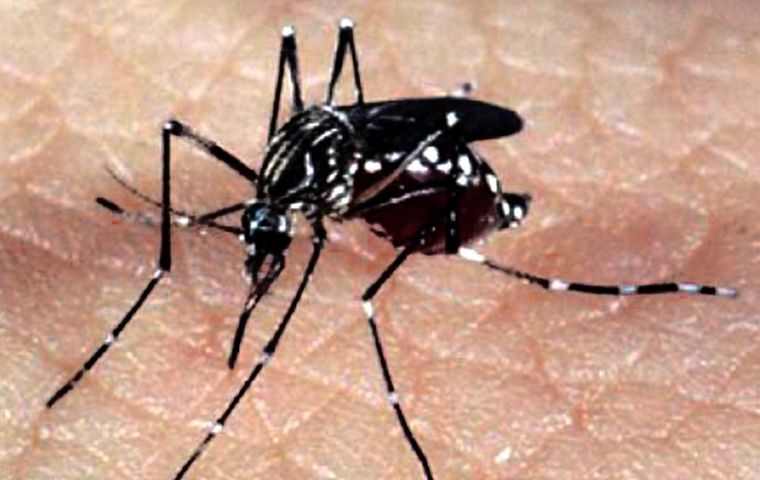MercoPress. South Atlantic News Agency
Uruguay: Number of dengue cases on the rise in Salto
 The last dengue epidemic in Uruguay was recorded in Salto in 1916
The last dengue epidemic in Uruguay was recorded in Salto in 1916 Uruguayan health authorities have expressed their concern about the recent increase in the number of cases of dengue fever in the town of Salto, where over 130 detections have been confirmed.
Specific measures were taken in the areas where most outbreaks were located, Salto Mayor Andrés Lima told reporters. He also pointed out that most cases were autochthonous, meaning that the patients did not have a recent travel history. Lima also mentioned that over 15 people needed hospitalization, mostly in intermediate care units.
Lima also pointed out that bottles of mosquito repellent had been distributed in schools and homes for the elderly, in addition to fumigation campaigns launched by the Health Ministry (MSP).
On Tuesday alone, the MSP reported that 48 new cases of dengue fever had been confirmed, 25 of them autochthonous and 23 imported. Hence, the total number of Uruguayan residents suffering or having suffered from dengue fever reached 434 (244 autochthonous and 190 imported). There were also three deaths.
In this scenario, the University of the Republic (UdelaR) plans to breed Aedes Aegypti and sterilize the male specimens to prevent reproduction.
“The idea is to breed Aedes Aegypti mosquitoes to, when they reach pupae, sterilize the males of these insects and release them sterile to nature. In the biology and behavior of these insects, females copulate only once. In this copulation, they already have the sperm necessary to fertilize all their eggs and with this, what we achieve is that these females, which did have sexual intercourse with the male, will not have offspring,” explained Yaster Basmadjian, from UdelaR's Institute of Hygiene. “The idea is, in the long run, to try to reduce mosquito populations,” he added.
The scientist also explained that the project entails no genetic modification of the insects. “We do not create monsters, we simply breed them here. The eggs came from nature and we started the colony. The egg is raised here, the larvae hatch, pupate, then become adults and then it is our own females and males, born in the laboratory, that continue to generate eggs to sustain the colony,” he elaborated.
In addition to the UdelaR School of Medicine, the MSP, and the International Atomic Agency are collaborating with the initiative.
Basmadjian also explained that the Aedes Aegypti is an African mosquito that arrived in America on ships carrying slaves, with “eggs stuck on the walls of the jars that brought water.”
“When it reaches the American continent, it quickly spreads throughout South and Central America and reaches the southern United States,” the expert added.
The last dengue epidemic in Uruguay was recorded in Salto in 1916. Between the 1940s and 1950s, there was a successful mass mosquito control and eradication campaign.




Top Comments
Disclaimer & comment rulesCommenting for this story is now closed.
If you have a Facebook account, become a fan and comment on our Facebook Page!